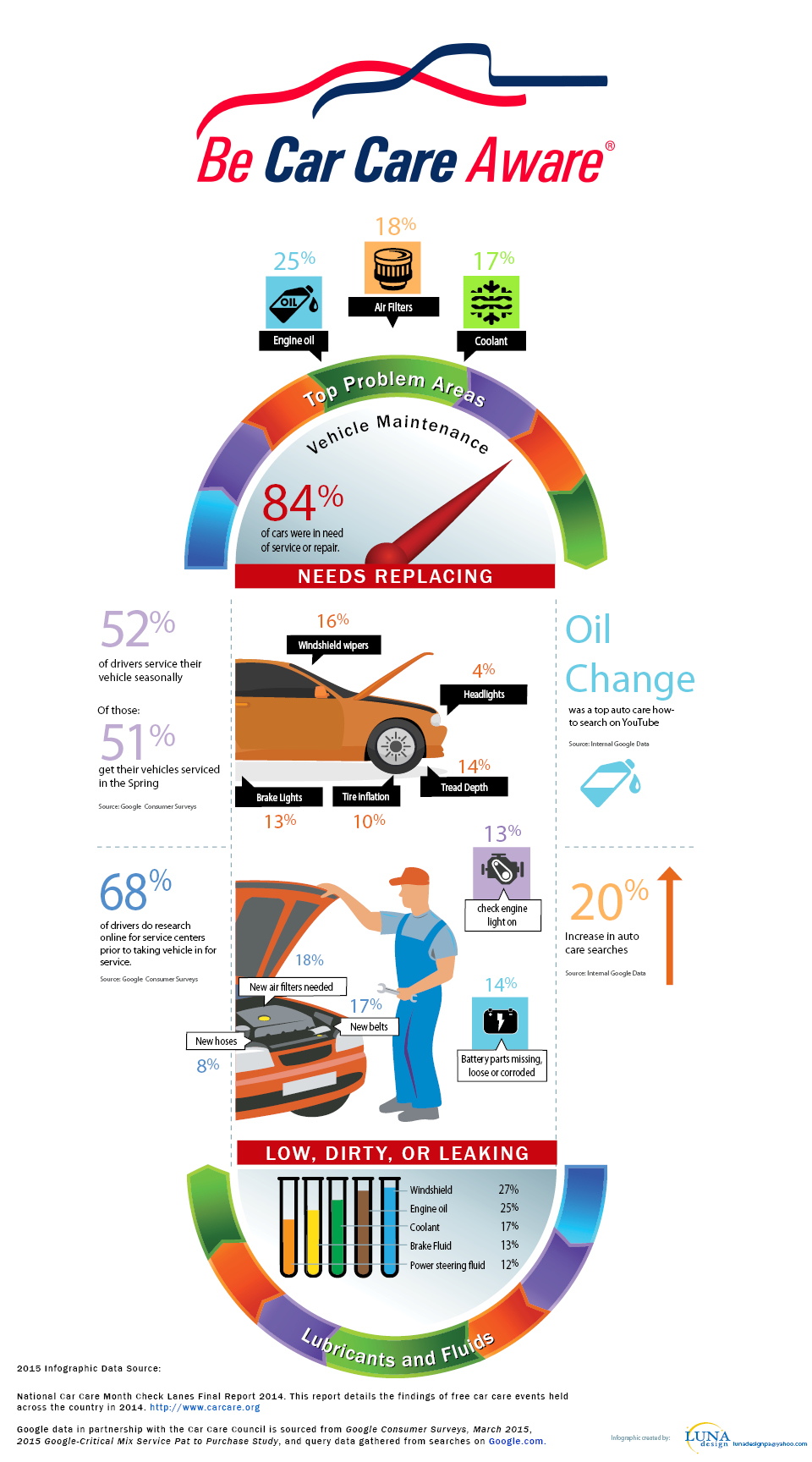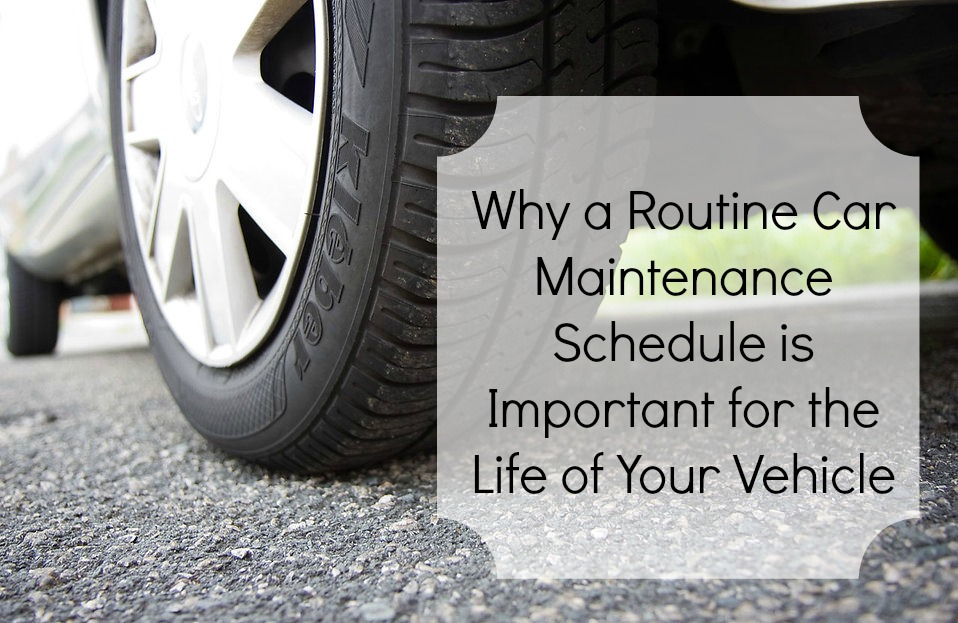A car maintenance schedule is very important to the life of your vehicle – it’s like your cars regular doctor appointments. Making sure to have regular preventive maintenance is one thing you can do as a car owner to keep your vehicle running and save money on repairs in the future.
Most car owners don’t even realize what their vehicle is lacking – a recent survey showed that
- 25% of cars had low or dirty engine oil
- 13% had low or contaminated brake fluid.
- 18% had dirty air filters.
- 17% had inadequate cooling protection or low coolant levels.
- 16% needed new windshield wiper and 27% had low or contaminated washer fluid.
- 18% needed new belts
Overall, 89% of vehicles were in need of at least one service or repair. These were people who thought they were doing everything they needed to do to keep their vehicles in the best condition possible – but they were missing a few key steps.

Infograph courtesy of CarCare.org
Read Your Owners Manual
I understand if you aren’t a instructions reader – I usually just dive in to a project too, but you need to pay attention to your owner’s manual. No matter what type of vehicle you drive your regular maintenance schedule is in it – you can find out when the recommended time to change your oil is (it’s different for different cars) , your air filters, driving belts, etc. You will even find out if you are putting the right gas in! There is a ton of information in that book, and all of it is for the benefit of keeping your vehicle in tip top shape.
Check the Fluids
Even if you don’t know how – learn how. It’s very important to check the fluids regularly – not just when you take your vehicle in for an oil change or other routine maintenance. You should check the level of your antifreeze, oil, transmission fluid, power steering fluid, and brake fluid weekly – a good time to do that is when you fill up your gas tank. Even if your car isn’t leaking fluids one time, it can be the next. If you’re running low, add more (if you can) or get it changed. Most importantly, never ignore a leak.
Change the Oil Regularly
I can’t stress how important this step is – this is one of the most important. Not only will it improve your gas mileage but it will protect your engine. Also be sure to change the oil filter at the same time. If you are like me, you don’t like to do these things yourself. One it’s just a bit too messy, and two, I’m just a bit too busy. That’s why I take it to a trusted dealership service center, like Atlantic Toyota .
Check Your Brakes
Make sure not to let your brakes wear down to the metal! That gets expensive and can cause other issues as well – also wearing down to the metal can damage your brake rotors and possibly your calipers as well. Rotors and calipers are much more expensive to replace than pads.
Tire Check
Rotate Your Tires. Rotating your tires is very important – it reduces uneven wear and tear on the tread and helps extent the life of the tires. It’s recommended to rotate your tires about twice a year or every 6,000 – 7,500 miles.
Tire Pressure. Did you know that under inflated tires can reduce the life of your tire by 15%? It also can decrease your gas mileage as well. Inflating tires is super easy to do, and you can check them while you are the gaas station as well. I recommend doing that just like when you check your fluids – each gas fill up (or at least every other).
Alignment
If you start to notice that your car is getting a little shaky while driving, you may want to get an alignment. Keeping the alignment ‘on track’ will help extend the life of your tires and also keep you safe!



